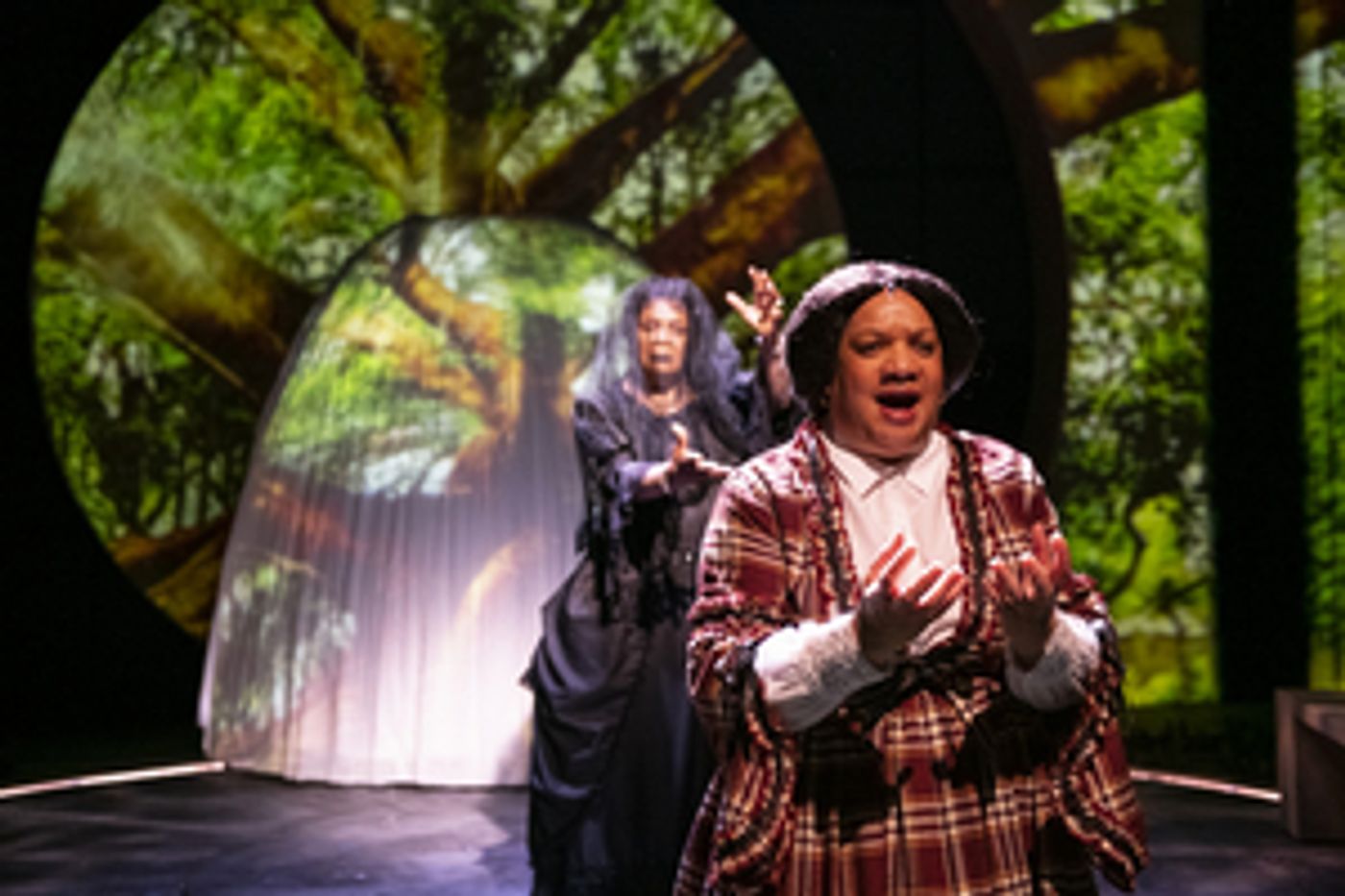Review: MARYS SEACOLE at Mosaic Theater Company
Mosaic produces play about the first on the list of popularly elected 100 Great Black Britons.

Mary Seacole (1805-1881) had more skills than José Andres; in addition to establishing catering in war zones (Seacole set up a rest stop for British soldiers near the front lines during the Crimean War.), she also provided health care services during Jamaica's 1850 cholera epidemic and Panama's the following year. The daughter of a Scottish soldier and a Jamaican boarding house keeper and folk medicine practitioner, Seacole combined her parents' worlds and systematically empowered herself to help whomever required help. Her self-concept wisely ignored the fact that she was female and half Black; she simply rose above the 19th century. Unfortunately, playwright Jackie Sibblies Drury seems more interested in scolding a modern audience than informing it. She creates a chorus of annoying contemporary women in Marys Seacole who absolutely don't measure up to the real Seacole. The contrast may be a clear point, but time might have been better spent imagining and realizing scenes of Seacole seeing needs and solving situations. Even the idea of structuring the play as if it were a Greek drama with stately monologues, brief dialogue scenes, and passages of choral commentary cannot properly elevate Seacole because her life was never tragic and contained no downfall. As was true in her 2018, Pulitzer Prize winning Fairview, Sibblies Drury's Marys Seacole avoids enlightenment and prefers agitation. Mother Seacole deserves so much more.
The excellent, six-woman acting ensemble, steady directing, and superb projections mitigate the script in the spacious Sprenger Theatre at the Atlas. And Properties Designer Deb Thomas and Scenic Designer Emily Lotz have created a spare but flexible environment with a tip of the hat to the look of the statue of Mary Seacole unveiled in London in 2016. Mona Kasra's projections appear on large shapes and particles rather than a customary rectangle, a clever way to do it. Their content complements the text brilliantly whether the ocean or Jamaica's lush green trees or paintings of the Crimean War or pages from the Illustrated London News or photographs of the title character. And there's a scenic coup de theatre near the play's end involving a large, white, ovoid object. No spoilers, but balletomanes in the house will enjoy being reminded of Mr. B's Mother Ginger from his Nutcracker.
Kim Bey leads the cast in the title role, and she really leads the way, bringing energy and nuance to her work. This sophisticated performance knows how to reveal Seacole and her strengths--Bey never "plays" the role. As Mamie (all the character names are variants of the grand old name, Mary, as is Marys), Amanda Morris Hunt at one point depicts an enthusiastic but disorganized trainee, learning Seacole-style nursing. Hunt coltishly evades Bey's calm--a watchable duet. Even though Hunt's accent is Jamaican-born, a DC audience would miss fewer of her words were she to dial it back a bit. Megan Graves has a particular flair for playing (annoying) young women; her Miriam in one context is a self-absorbed teen, nosed into her smartphone rather than interacting with her grandmother in a nursing home bed; in another scene Graves' character, newly panicked by the loneliness of motherhood, gushes clichés about her honeymoon visit to Montego Bay when her mind ought to be in a more mature place. Graves has mastered the art of embodying a female creep. Broadway veteran Tina Fabrique moves through Marys Seacole like the spirit her character is (Duppy Mary means "ghost Mary" in Jamaican Creole.). Practically floating in Costume and Wig Designer Moyenda Kulemeka's Victorian black taffeta gown, Duppy Mary would be Coryphaeus if this play really were a Greek tragedy, ominously commenting on but not fully part of the action. Fabrique's Duppy Mary is the only character in the play as strong as Mary Seacole, and her late moments with Bey are the production's most compelling. Tonya Beckman and Claire Schoonaver round out the fine company which has been guided with a graceful, steady hand by director Eric Ruffin.
Running about 90 minutes, Marys Seacole will be at the Atlas through May 29. Find tickets, information, & covid policies at mosaictheater.org.
Photo by Margot Schuman
Reader Reviews
Videos

